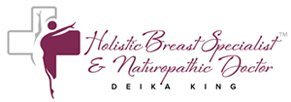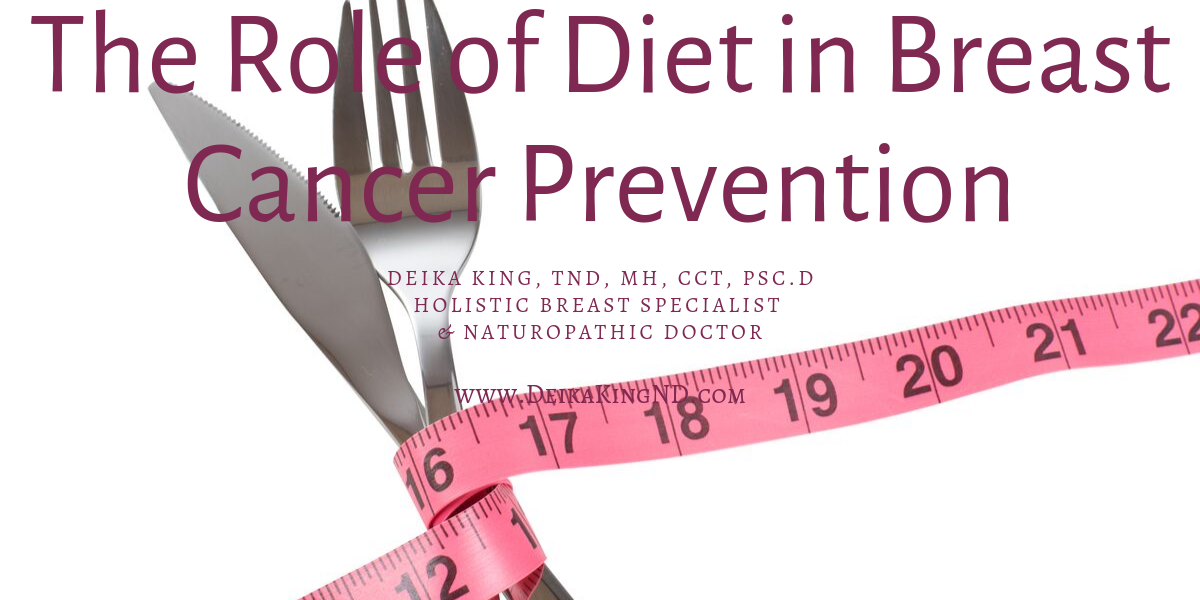Whether you have a high risk of cancer or you have a family history, implementing diet as a cancer prevention technique is the smartest way to go.
There are some things that are for the most part unchangeable, such as your genetics. But people underestimate the amount of control they can have over their health and often throw caution to the wind.
However, you won’t be one of those people, right? That’s why you’re reading this, after all! Let’s explore how the right diet can reduce your risk for breast cancer.
Diet Can Help Modulate Estrogen Activity
Many types of breast cancer are estrogen dependent, meaning that they thrive under the influence of estrogen. As a woman, it is impractical to completely block the effect of estrogen in your body since estrogen. Especially since that is what makes a woman a woman.
However, there are many foods you can incorporate in your diet that can block the effects of estrogen. Two such foods are soy (or soy products) and pomegranates. Soy has a structure that resembles natural estrogen and so it is able to mimic estrogen without causing the growth of cancers depending on the type of cancer.
Pomegranate is able to reduce the production of estrogen and may be especially useful in obese women who struggle to keep their higher estrogen levels under control.
Lower Fat Diets May Reduce Breast Cancer Risk
The reasons that lower fat diets may reduce the risk of breast cancer are not exactly known. One reason may be that dietary fat carries the largest burden of calories when eaten. By reducing your intake of fat, you actively help to control your body weight (as increased body fat is associated with higher estrogen levels). Also, toxins are fat-soluble, therefore, the more fat the higher chance of toxic build up.
Whatever the reason may be, it has been shown that low fat diets are correlated with reduced recurrence of breast cancer in women who were previously diagnosed with hormone-negative breast cancers. Hormone negative breast cancer is much tougher to treat, since blocking estrogen will not usually improve the outcome.
Diets High in Plant Based Foods Are Associated with Lower Risk of Breast Cancer
All cancers start somewhere, typically from one cell that begins to grow uncontrollably. This one cell then “reprograms” other healthy cells to do the same. Thus, the catastrophic cancer cascade begins. Diets high in plant-based foods (fruits and vegetables) can help reduce cancer risk via numerous modes of action.
One way they do this is that plant-based foods are extremely nutrition dense, which normally translates to an optimized immune system. An optimized immune system is able to easily identify and destroy abnormal cells and invaders, boosting resistance significantly.
Another way plant-based food reduce cancer risk relates to the ability of plant phytonutrients to aid detoxification, remove waste from the body, and counter the effect of oxidants on the cells of the body.
Plant based diets may also help to reset the body’s natural genetic predispositions, removing adverse changes in a person’s body that would not have happened had that person been eating the right way.
Certain Diets Boost IGF-1 Production
IGF-1, also known as insulin-like growth factor 1, is a hormone that is extremely important in humans. It possesses strong anti-aging and restorative abilities but at the risk of increasing cancer development. For years, people have wanted a way to increase IGF-1 because of its benefits, while at the same time decrease cancer risk.
The best way to do this is to eat a diet high in plant-based material and low in animal proteins and fat, since this may give you the best of both worlds. Higher animal based protein diets promote cancer development for this same reason.
It is a good practice to start by making small changes to your diet. Do not overwhelm yourself. If you hate veggies, find one or two that you can tolerate and include them in a meal or two every day. Simply improve as you go through your journey to better health and you will reduce your risk of breast cancer.
Deika King, TND, MH, CCT, PSc.D
Traditional Naturopathic Doctor
832-422-7271







